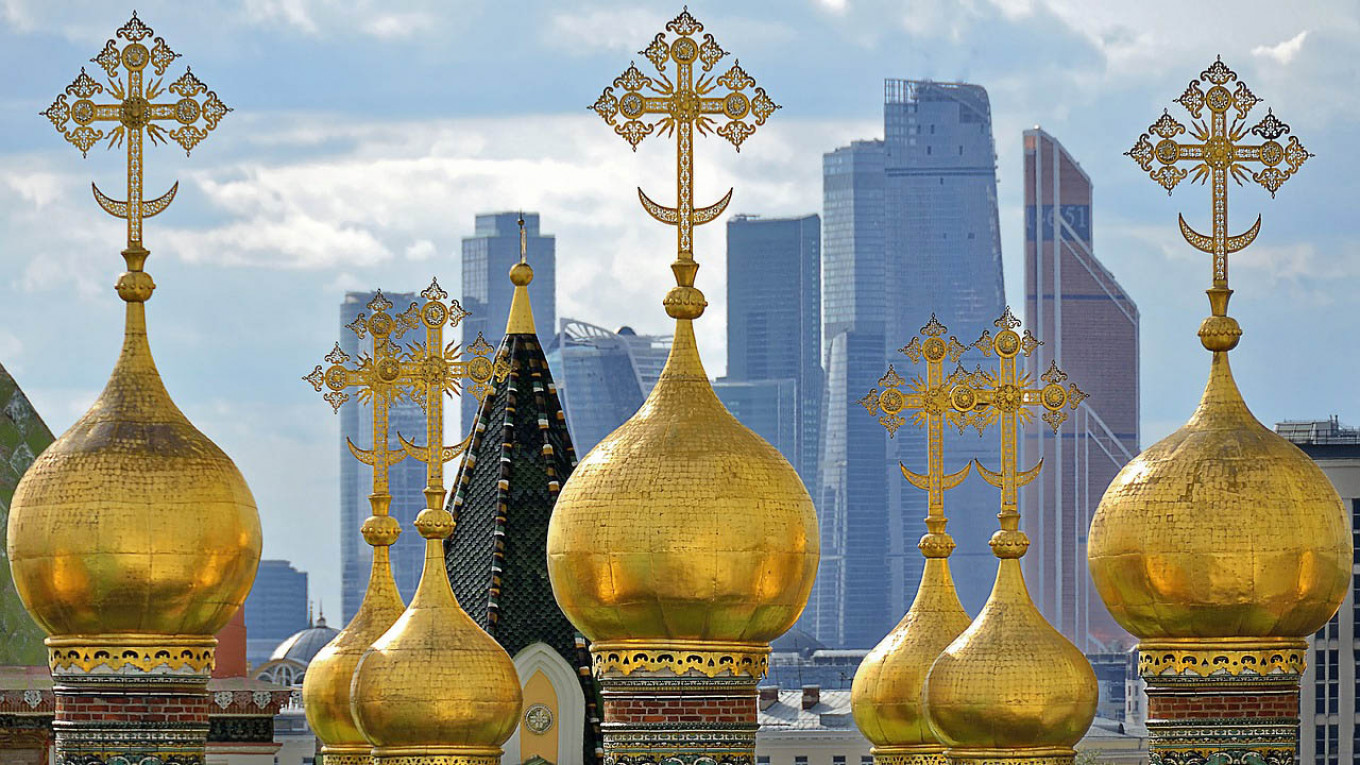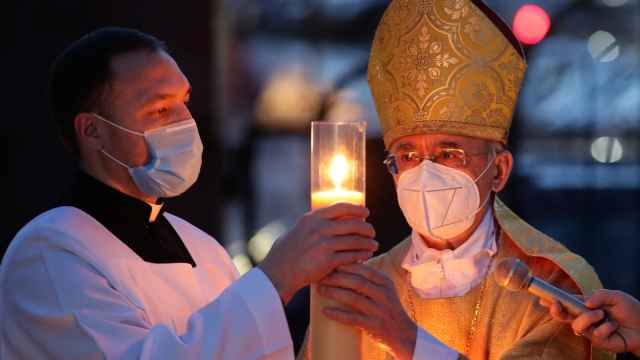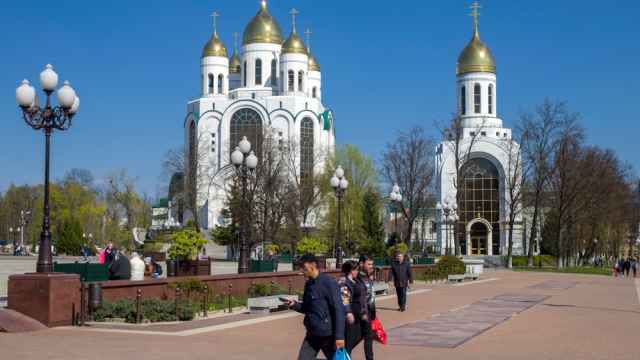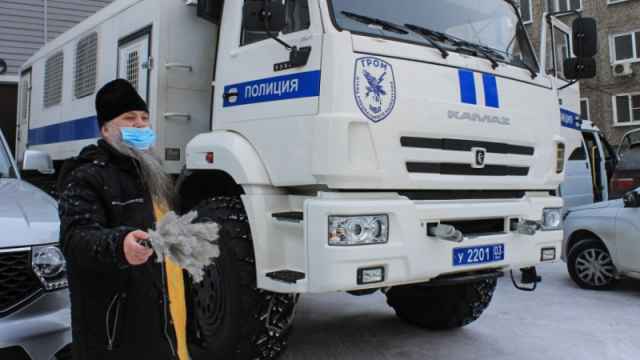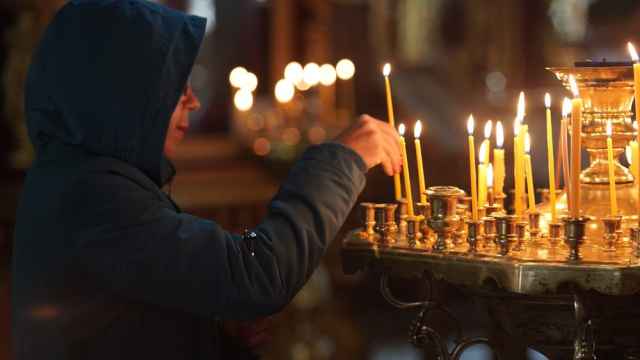Church construction in Russia is going through a boom, with new Orthodox churches springing up around the country at a frantic pace. While this suits both the interests of the Russian Orthodox Church and big business, citizens are becoming increasingly dissatisfied: the sites chosen for proposed churches are often public spaces that are important to them.
On May 26, Patriarch Kirill announced that the Orthodox Church is building around three churches a day on average, or what amounts to 30,000 churches in 10 years. Vladimir Legoida, the chairman of the synodal department for church public relations, subsequently corrected the error, specifying that the actual figure was 9,386 new churches in 10 years. This reflects a growth of 32 percent in the number of churches and other places where the liturgy is held: from 29,263 at the beginning of 2009 to 38,649 at the beginning of 2019.
These figures are for Russian Orthodox parishes all over the world, though in Russia itself the figures are more modest. At the beginning of the 1990s there were around 2,000 functioning churches in the Russian Soviet Federative Socialist Republic; today in Russia, according to official Church statistics, there are 21,849 churches, chapels and other places of worship.
As a rule, construction is financed by private sponsors, some of which are state structures or those with close links to the state, such as the oil pipeline monopoly Transneft and Russian Railways.
Sometimes this is the initiative of the diocese, sometimes of a company itself.
But the reaction of society to such frenetic construction is not always positive: if in the 2000s people quietly accepted the construction of churches, now a substantial part of society sees this as a challenge or a threat.
This is partly the result of people projecting their frustration with state social policy onto the church, which often sides with the state on such issues. Another problem, one that recently caused protests in Yekaterinburg (and before that in Moscow), is the choice of a park or green square (public land) as the site for construction: in such cases, even those who in principle have nothing against the appearance of a new church may be unhappy.
The choice of site for a church is often dictated by the same considerations as for commercial real estate: the site should be visible, in the center, in a place with plenty of passing traffic.
As a result, says there are few churches or none at all in the outskirts of cities and in bedroom suburbs – places where people actually have greater need of them.
According to Legoida, the number of churches in Russia is relatively few if based on the relationship between the size of the population and the number of churches: in the Novosibirsk diocese, for example, one Orthodox church has a congregation of 25,000 people.
But such estimates do not take into account the number of actual believers.
Using data from surveys carried out by the Higher School of Economics in Moscow in 2018, the sociologist Yana Roshchina worked out that while almost 81 percent of adult Russians consider themselves Orthodox, this is often a declaration of identity rather than faith.
Just 6 percent of the population and 43 percent of believers go to church several times a month. According to Interior Ministry statistics, 4.3 million people across the country attended Easter services in 2019 – around 100,000 fewer than a year before.
The number of parishioners risks falling dramatically out of sync with the sharp rise in the number of churches – and the larger a church, the more obvious it is when it’s half-empty.
A Russian-language version of this article was first published in Vedomosti.
A Message from The Moscow Times:
Dear readers,
We are facing unprecedented challenges. Russia's Prosecutor General's Office has designated The Moscow Times as an "undesirable" organization, criminalizing our work and putting our staff at risk of prosecution. This follows our earlier unjust labeling as a "foreign agent."
These actions are direct attempts to silence independent journalism in Russia. The authorities claim our work "discredits the decisions of the Russian leadership." We see things differently: we strive to provide accurate, unbiased reporting on Russia.
We, the journalists of The Moscow Times, refuse to be silenced. But to continue our work, we need your help.
Your support, no matter how small, makes a world of difference. If you can, please support us monthly starting from just $2. It's quick to set up, and every contribution makes a significant impact.
By supporting The Moscow Times, you're defending open, independent journalism in the face of repression. Thank you for standing with us.
Remind me later.


